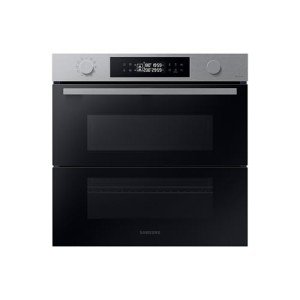The 10 Most Terrifying Things About Integrated Electric Oven
ліёл¬ё
The Rise of Integrated Electric Ovens: A Comprehensive Guide
Integrated electric ovens are ending up being increasingly popular in modern-day kitchen areas due to their smooth design, energy performance, and advanced cooking features. Designed to mix flawlessly with kitchen cabinets, these appliances not just enhance looks but likewise provide a variety of functionalities that deal with the cooking needs of modern households. This article will explore the advantages of integrated electric ovens, how they compare to traditional ovens, and important elements to think about when acquiring one.
What is an Integrated Electric Oven?
An integrated electric oven is designed to be built into kitchen cabinets, providing a streamlined look that maximizes area performance. Unlike freestanding ovens, integrated designs typically include a flush fit with kitchen cabinetry and include designs that can match or match the surrounding kitchen decoration. These ovens usually come with a wide variety of performances, consisting of convection cooking, self-cleaning options, and smart innovation features.
Advantages of Integrated Electric Ovens
The appeal of integrated electric ovens lies in their various benefits. Below are some of the crucial advantages:
Aesthetic Appeal
- Integrated ovens use a clean and modern appearance.
- They can be tailored to match the kitchen's cabinets and design theme.
Area Efficiency
- Created to take full advantage of the offered kitchen area.
- Ideal for smaller kitchens where freestanding designs might be troublesome.
Advanced Cooking Features
- Lots of designs consist of functions such as convection heat, steam cooking, and multiple cooking modes.
- Smart ovens can even connect to Wi-Fi for remote tracking and control.
Energy Efficiency
- electric integrated oven ovens frequently provide more constant heating and integrated electric oven faster cooking times compared to gas ovens.
- More recent designs are developed with energy-saving innovations, which can help in reducing energy bills.
Improved Safety

- Integrated ovens typically include features such as auto shut-off and child lock functions for added security.
Table 1: Comparison of Integrated Electric Ovens and Traditional Ovens
| Feature | Integrated Electric Oven | Standard Oven |
|---|---|---|
| Style | Built-in, flush-fitting | Freestanding, takes up more space |
| Cooking Efficiency | Normally quicker, more even heating | Varies, typically longer warm up |
| Aesthetic Integration | Smooth with cabinetry | Standout device |
| Area Usage | Space-saving | Needs more floor area |
| Advanced Features | Typically consists of wise innovations | Minimal technological integration |
| Energy Efficiency | Normally more energy-efficient | Can differ by model |
Key Features to Look For in Integrated Electric Ovens
When shopping for an integrated electric inbuilt oven, various functions ought to be considered to ensure you pick a design that fits your cooking design and preferences. Here are some essential functions to think about:
Size and Capacity
- Search for ovens that fit within your kitchen cabinets and evaluate internal capability based on your cooking needs.
Cooking Modes
- Think about designs that offer several cooking functions consisting of bake, broil, steam, and convection to broaden cooking possibilities.
Self-Cleaning Options
- Self-cleaning modes save time and effort in maintaining the oven.
Control Options
- Touchscreen manages or smart tech integration for remote gain access to can add convenience to cooking.
Energy Rating
- Choose energy-efficient designs with good scores to ensure lower operating expense.
Service warranty and Support
- Look for warranties to cover repairs and replacements and the availability of consumer service.
Frequently asked questions
Q1: What makes integrated electric ovens different from built-in ovens?
A1: Integrated electric ovens are particularly designed to mix into cabinetry, providing a smooth aesthetic, integrated electric oven while buy built in oven-in ovens may not necessarily have the same flush style and frequently stick out more as private appliances.
Q2: Are integrated electric ovens more pricey than standard ovens?
A2: Generally, integrated electric ovens can be more costly due to their style and advanced functions. However, the long-term energy cost savings and enhanced effectiveness often balance out the initial expense.
Q3: How do I make sure appropriate setup of an integrated electric oven?
A3: It is suggested to work with an expert for setup, as integrated ovens require precise measurements and can involve electrical connections that should comply with regional building regulations.
Q4: Can I customize the look of my integrated electric oven?
A4: Yes, lots of makers use personalized panels or surfaces to match your kitchen cabinetry, enabling a completely integrated appearance.
Q5: What upkeep does an integrated electric oven typically require?
A5: Regular cleaning, particularly after heavy usage, and checking seals and vents for wear are suggested to preserve the oven's functionality and appearance.
In conclusion, integrated electric ovens are a practical and stylish addition to modern-day cooking areas. Their benefits include aesthetic appeal, energy effectiveness, and advanced cooking features, making them a popular option for home cooks. Comprehending the crucial characteristics and comparing different models can help consumers make notified buying choices and pick an integrated oven that best suits their cooking requirements and kitchen design. With their seamless integration and technological advancements, these ovens are poised to end up being staples in the kitchen for years to come.

лҢ“кёҖлӘ©лЎқ0
лҢ“кёҖ нҸ¬мқёнҠё м•ҲлӮҙ